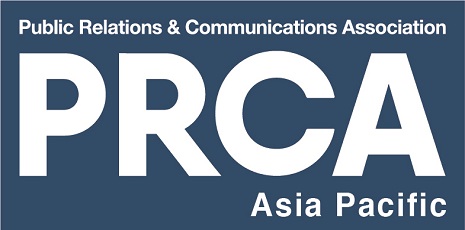Hanh Le MPRCA, Assistant to Managing Director, EloQ Communications,
The public relations (PR) industry has a long history, but it is neither obsolete nor boring. As digital transformation takes over the world in the 21st century, the PR industry and its practitioners are also transforming and renewing the way they work. Especially after COVID-19, even more drastic changes were made upon standard PR practices. So, what aspects of modern PR that we should be focusing on in 2021?
1.Elements of modern PR
Nowadays, both online and print media are used to deliver brand messages; SEO, keywords, and search trends now influence brands’ content strategies. Modern data-driven techniques are employed to help brands understand how their audience conduct online searches. From there on, brands can create relevant content and keywords to reach the target audience.
Consumers are now acting more indifference toward brands’ direct messages in a world with over-exposure to advertisements. To capture their attention, brands should tell relevant stories and put out informative content with subtle brand endorsement. Many brands in Vietnam are adopting MV format to deliver their campaigns. This kind of content approach not only brings more values to consumers by satisfying their needs with the necessary information, but also helps consumers understand how brands’ products or services can solve their problems. Digital transformation has become a part of modern PR; and PR professionals need to acquire their digital understanding to thrive in 2021.
2.Targeting the right audience
With traditional media in the past, it’s challenging to tailor brand messages to specific audience groups. The first reason is the lack of data on consumers’ behaviors and background, and the second reason stems from the lack of tools to reach them distinctively. But with modern digital solutions, it’s possible to gain insightful data and track the digital footprint of target audiences. This allows modern PR practitioners to create targeted campaign and messages that touch consumers’ pain points, and deliver the messages to the target audience on the right channels.
The limited choice of traditional PR used to force brands to go mass with a general message, which requires a sufficient amount of budget to be effective. However, modern PR methods can empower the voices of small and medium brands by reaching the right target audience while optimizing allocation. In no doubt, targeting the right group of people will help brands increase their conversion rate, and allow them to get their fair share of the market.
3.Tailoring personalized message
The ultimate goal of targeting is to deliver the right message to the right people. To better capture consumers’ limited attention in the digital space, the target audience can be further segmented based on demographic, traits, behaviors, geographic location, social status, etc. The key message can be tailored to these characteristics of the segments, and strengthen the emotional connections between brands and their consumers personally. Brands can apply various tools to create this personalized experience, from digital ads, online banners, to interactive video, and many more.
4.Appealing to the public’s eyes
One crucial key learning from 2020 is that brands should look out for on-going social trends and social issues. Brands that can successfully voice their opinion and communicate ethical virtues will definitely win the hearts of their users. Riding on the trends and speaking in the audience’s familiar tone of voice could help the messages go viral, and it will definitely increase the rate of engagement.
However, brands should note that public relations is a long-term investment. Just like a person’s personality does not easily change, public perception of the brands also does not change overnight. Brands should consistently communicate their stories to the public to position themselves.
5.Keeping social media knowledge up-to-date
According to We Are Social’s report on digital usage in 2020, active social media users account for 49% of the Earth’s population, which increased 9.2% compared to 2019 (can you imagine!). This data shows a tremendous potential of social media as a booster for PR and content marketing activities.
Every social media platform works on an algorithm, and we need to understand it to fully utilize this tool. For example, the new Facebook just introduced in 2020 brought many features and modification in algorithm along with its new user interface. That’s why PR and marketing specialists are learning to adapt to these new aspects. Continuous updating, analyzing, and testing new content approach and user engagement is required to master this platform.
In addition, with concerns over Facebook and Twitter censorship recently, many are turning to new social media platforms to gain more freedom, so 2021 is the year the PR professionals should pay attention to where their audience is going.
6.Embracing mainstream media
Social media is famous among the communications industry for its speed. But this speed is a double-edged sword since it can spread fake news. This was clearly demonstrated during COVID-19 pandemic. A report by Edelman pointed out that the trust for mainstream media rose to 65%. In comparison, that of social media stood relatively low at 43%. Vietnamese users are returning to mass news outlets to find trust-worthy and verified information.
In Vietnam, mainstream media has maintained their position with the ability to provide readers with precise information. Authenticity is a competitive advantage that helps online news outlets win against social media sites. This is a thing to keep in mind when selecting media to approach the public in post-pandemic 2021 campaigns. For a really long time, customers have put their favor on social media; however, after this pandemic, mainstream media will definitely appear again in communications plans.
7.Measuring result
To evaluate the effectiveness of their campaigns, brands should determine appropriate KPIs and measuring metrics based on campaigns’ objectives. There are various indexes to evaluate PR activities, such as reach, engagement, impressions, frequency, cost per click (CPC), click-through rate (CTR), cost per thousand (CPM), etc. These are standard metrics that we often use, but the key point is to fully understand when and what KPIs are relevant to apply. For example, reach and engagement is a reliable metric to use when brands are building awareness. Still, it wouldn’t make much sense in demand stimulating campaigns.
This is an analysis from EloQ Communications. Read the full article with more details and examples on EloQ’s blog.
Written by Hanh Le, Assistant to Managing Director at EloQ Communications, a leading PR agency in Vietnam. Hanh is supporting EloQ in connecting and maintaining relationships with partner agencies across Asia and other global PR networks to execute worldwide projects.


